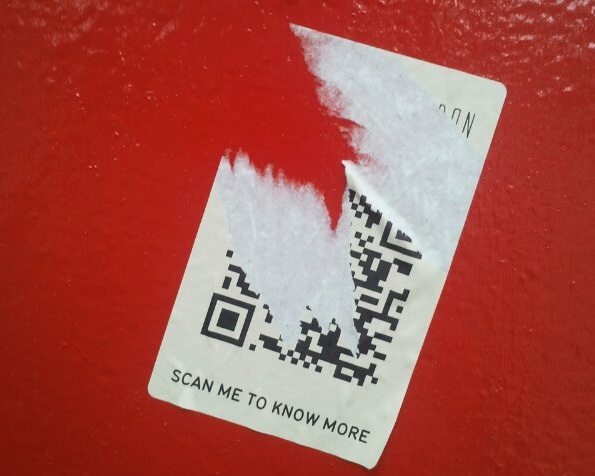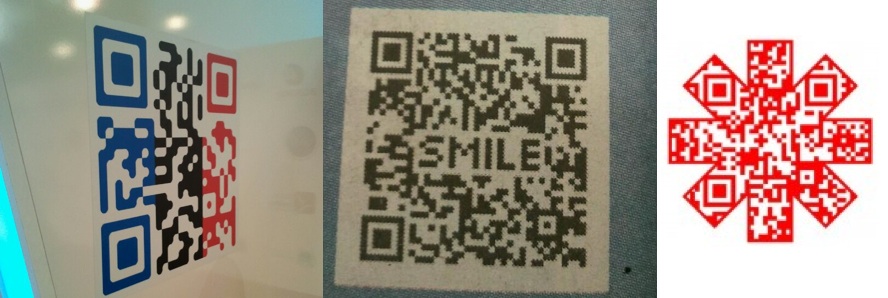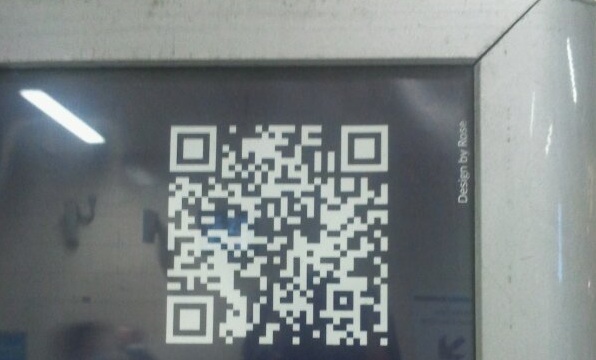How To Create A Qr Code For A Google Doc
Top 10 myths about QR codes
Those little black-and-white squares are taking over! Every newspaper drips with them, they can be seen in art galleries and shaved into footballer's heads. Obviously someone thinks they're a good idea - yet lots of people seem to get very irate at their very mention.
Here's my quick guide to the top ten myths about QR codes.
1. QR codes can only contain a web address
It's true that the most popular use of QR codes is for URLs, but in fact they can contain any type of text. This means that you can use them to send emails, text messages, point out geographic locations, log in to WiFi, or even make a phone call.
2. No one is scanning QR codes
It's a popular meme that QR codes are made by over enthusiastic marketing departments despite no one scanning them. Public statistics can be hard to find, but TfL's QR codes in London are scanned by around 10,000 people per month. The QRpedia enabled exhibits in the Miro museum were scanned over 12,000 times.
3. Visual recognition will make QR codes obsolete
Wouldn't it be great to point your phone at a poster and have it slurp the information off? Well, yes, but it's highly expensive and really impractical. It requires lots of centralised infrastructure and high computing power. There's also the tricky issue of homographic disambiguation - computers find it really tricky to tell the difference between 1!Il| or even 0 and O.
4. NFC kicks the arse of QR codes
Ahhh, NFC. The "cold fusion" of the mobile world. Like cold fusion it will revolutionise the industry and it's merely a few years away! Sadly NFC has been a few years away for the last decade! There are virtually no NFC handsets on the market and the tags are expensive. Almost every cameraphone can have a free QR scanner and the codes are cheap to generate and print.
5. It's easy to damage a QR code
You know how you can scratch CDs and they will still play? They contain error-correction which means that minor defects can easily be ignored. QR codes incorporate the same technology - meaning up to 30% of a code can be damaged or obscured and the code will still be scannable.

6. QR codes look boring
There's no need for QR codes to look boring. You can combine a variety of colours and logos into a QR code - just so long as you remember not to obscure the three corner squares.
Take a look at these examples:

7. QR codes can be inverted
No. No they can't. Don't even try this. Some QR scanners will attempt to invert the image, but the majority just won't be able to cope.

8. You need mobile / WiFi signal to use QR codes
With the advent of WiFi in the London Underground, this complaint has started to dry up. However, nearly every single QR scanner will store the results of a scan so you can access it once you're back in coverage.
9. It's really complicated to generate QR codes
There are a tonne of free and easy to use QR generators:
- ZXing
- QR Stuff
- QR Generator PHP (on GitHub)
10. QR codes are easy to use
Perhaps the most contentious one. Because it's so easy to generate QR codes there is a tendency for people to put them to really bad use. QR codes on billboards too high for anyone to scan, codes on motorways when cars are travelling too fast to scan, codes which lead to non-mobile websites, codes hidden behind other objects - the list is almost endless.
Conclusion
QR codes are on an unstoppable rise - they are being used by businesses both large and small, they're used by activists and individuals, they're on billboards and badges.
They're free to use, and customers seem to have taken a shine to them. QR scanners now regularly feature among the top downloaded apps from app stores.
So, I say that it's time to embrace QR codes in all their blocky glory. Jump aboard the QR revolution and start scanning!
Related articles
How To Create A Qr Code For A Google Doc
Source: https://www.creativebloq.com/netmag/top-10-myths-about-qr-codes-10126015
Posted by: steigerwaldducke1954.blogspot.com

0 Response to "How To Create A Qr Code For A Google Doc"
Post a Comment